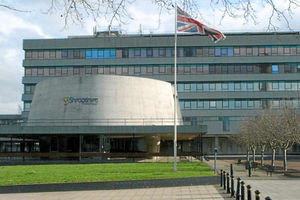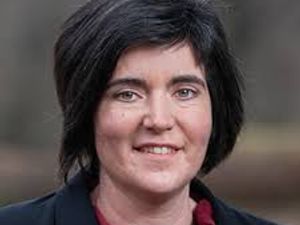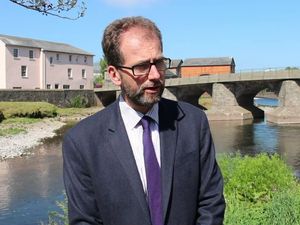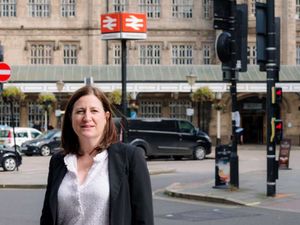More jobs will go as Shropshire Council role changes
Shropshire Council will cut its workforce as it contracts out more of its services, according to its chief executive.

Speaking at a meeting of the council's cabinet Clive Wright, the authority's chief executive, confirmed that staffing, services, as well as equipment and resources used to provide them are being reviewed.
Mr Wright was responding to a question from Hannah Fraser, the Liberal Democrat Councillor for Shrewsbury's Abbey Ward, who asked why layers of management at the council had not reduced in line with job losses.
She said: "There has been a reduction of 1,420 but the council structure in terms the number of layers under the chief executive remains at 4.9. It seems extraordinary that we can have such a change in workforce now without any change in the complexity and the bureaucracy of the council.
"This is clearly of great concern."
Mr Wright was also asked what the figure of 4.9 referred to. He responded that it was unusual but is related to different salary bands for staff.
In response he said: "We are now working on a new strategic structure of the council based around commissioning and not delivering. I am confident that will address the hierarchy."
Mr Wright had earlier told the meeting: "For a couple of years now the council has been clear we are moving towards a commissioning model.
"Certainly when we are commissioning, not delivering services, the back office we will need to support that will change."
He told councillors the authority "will shortly be producing a financial strategy".
He added: "Then we will begin to see what services will be delivered on behalf of the council, what the future of provision will be and start to shape the back office."
The idea behind a commissioning council is that it buys the services it provides from other companies and organisations, instead of supplying them with its own staff and equipment.
Currently Shropshire Council has more than 4,000 members of staff.
Shropshire Council's leader Keith Barrow has previously talked about the idea behind a commissioning council and has said it may require a workforce of only 400 people.
Councillor Barrow said: "With a commissioning council people make it sound very complicated but it really is very simple. We create a council which would initially be about 400 people and they would then commission other people and organisations to deliver services we require."
Councillor Steve Charmley, deputy leader and cabinet member responsible for commissioning, said the delay in reduction to layers of management had been a result of the speed of changes in the way councils operate with less funding.
He said: "Given the financial challenges and the way the councils are going it is the correct way to go."




